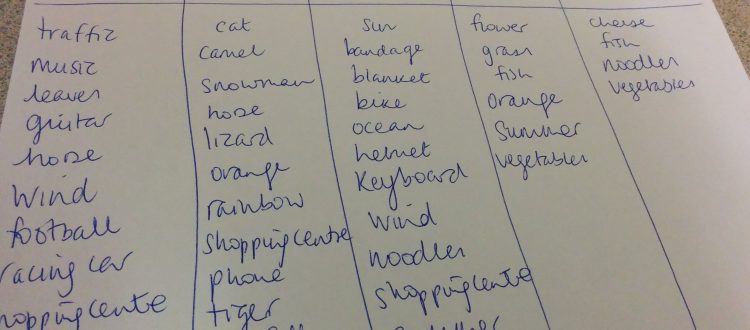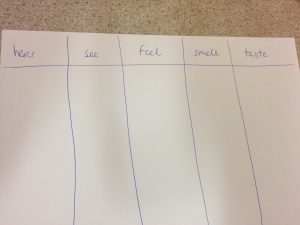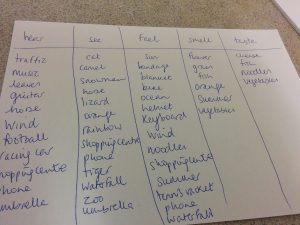1
Apr
2017
How do you ‘experience’ the word?
Today, I thought I’d share an activity which can give our students (and we, the teacher) some insights into how they ‘experience’ the world and the things in it. It’s based on an activity I once ‘experienced’ myself way back in the 1980s in Madrid when Mario Rinvolucri came to International House and he and the teachers there shared ideas for using dictation.
I’ve used it lots of times over the years, but not very recently, so I thought I’d recycle it and share to work on words from the Cambridge English: Young Learners Tests wordlists.
First, ask students to make a ‘table’ with five columns. At the top of each column, they write the different ‘sense’ verbs: hear, see, feel, smell, taste.
Next, explain to students that you are going to say different words. Tell them to write the words where they first experience them – for example, with the verb clap, some students might hear applause, others might feel their hands clapping, and other learners might see an audience clapping. (They might experience them simultaneously in more than one way, and they can write them in more than one column.)
Say these words (replace any which are not really relevant for your students as necessary): Learners write them in the column where they experience them.
flower, traffic, cat, sun, bandage, music, blanket, grass, bike, camel, leaves, cheese, ocean, guitar, fish, helmet, snowman, horse, keyboard, lizard, wind, football, noodles, orange, rainbow, racing car, shopping centre, summer, tennis racket, phone, tiger, vegetables, waterfall, zoo, umbrella
When you’ve finished, learners share their ‘experiences’ of the words in small groups or pairs. They can explain why they wrote the words under the different verbs. For example, if someone in your class plays the guitar, they very probably felt the guitar and heard it. They may well have seen it in their bedroom and even smelt it! For another student, who doesn’t play the guitar, they would probably have heard it and seen it.
You and your students will probably ‘experience’ the words in more than one way as you get into the activity – the final words that you say may well be written in more than one column as their senses are ‘activated’.
After the activity, I would strongly recommend you collect in their papers (with their names on) and notice which senses are strongly developed in your students. It may well help you ‘reach’ them better because you can work on language using the different senses.
Here’s my ‘experience’ of the words:
And, of course, you can encourage students to include the senses in their storytelling. Instead of saying ‘It was raining.’, they can say:
This morning, I put on my boots, opened my umbrella and left home. The ground was wet and the cars made a lot of noise when they passed.
The listener or reader ‘experiences’ the rain much better, don’t you agree?



